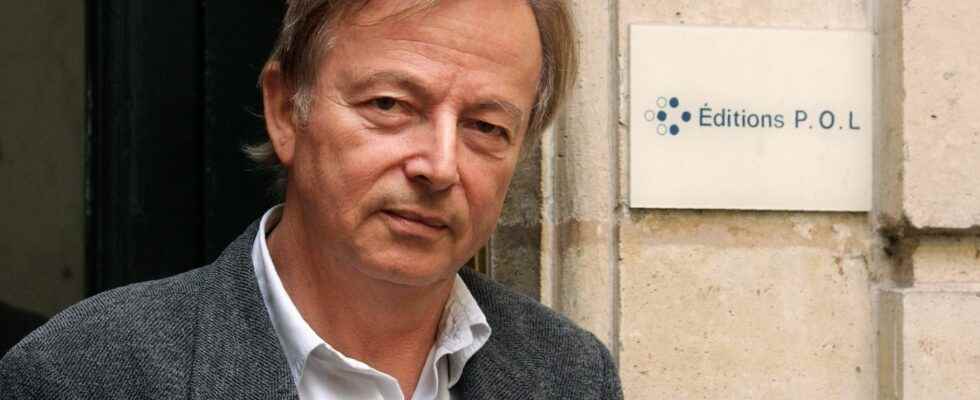In what other country would the death of a major publisher make the front page of a national daily and the cover of a cultural magazine? That Jérôme Lindon was thus honored the day after his death by Release and that Paul Otchakovsky-Laurens was in turn in the same circumstances seventeen years after his model both by Release and the Inrocks say something about the French cultural exception. Something joyful despite the sadness of the event.
We owe the writer and literary critic Mathieu Lindon to have made this connection in The Archive, a filial story honoring the memory of his father who was for decades the soul and the animator of the editions of Minuit; it appears at POL precisely, the opportunity to celebrate its own editor in a strange mirror effect. This book, full of anecdotes, things seen, comments reported, accomplishes the feat of being fascinating, funny, edifying, while it is so badly written that certain paragraphs, composed in gibberish which is a challenge to common syntax, we remain unintelligible. Does what he reports have to be original for us to read it in one go! It is true that the author, so moving when he expresses his love for the closest of distant fathers, had the privilege of living from his earliest years in the shadow of “family friends”.
Because the writers of Minuit, failing to constitute a school or to create the illusion of it under the uncertain banner of the New Roman, were none the less a family of spirit. Home and Home were one. There paraded regularly at the table or in the living room Nathalie Sarraute, Marguerite Duras, Michel Butor, Alain Robbe-Grillet, Robert Pinget, Claude Simon and especially Samuel Beckett, tutelary figure of the tribe and godfather of the author. There are worse beginnings in life for a literary-loving teenager than discreetly listening in on their conversations. We understand that Mathieu Lindon presents himself as a living archive. A witness as much as an actor in literary history.
“We need to archive you just right”
It does not hide the faults of the editor (greed, distrust, perfectionism) although the qualities prevail in the balance: curiosity, flair, availability, efficiency, pugnacity, without forgetting the two most important melted into a portmanteau created for him alone: ”intelligent” (even if one could see rather the perversity in his birthday present to his son for his 15 years: the complete works of Robbe-Grillet!). With a joyful freedom of tone that contrasts so strongly with the paternal discretion bordering on the cult of secrecy, it reveals the details of the heritage and many other things not all to the honor of Jérôme Lindon. But they are dissipated by the poignant portrait he makes of him on a recurring basis, at the risk of repetition: a man crippled with grief riveted to his desk, tirelessly writing letters not to prestigious authors but to his only grandson. , a stranger he will never know as they live in the same town, his other son forbidding him to see him following a family estrangement.
“We need to archive you just right”, writes Mathieu Lindon in the fall of his story. At the evocation of a loved one, talk about it neither too much nor too little. A delicate balancing act. It seems hardly believable but, over the course of a Parisian existence entirely devoted to books, the critic and publisher Maurice Nadeau had barely met Jérôme Lindon; they preferred to write to each other, a practice still common in the 20th century. He nevertheless paid him the most vibrant tribute to his death: “He was the conscience of all of us, publishers, journalists, booksellers… His disappearance will affect all those who will increasingly realize that despite the weight money and all the technological advances, publishing cannot do without publishers.”
These highly topical lines, although written in 2001, can be found in the third and final volume of Sixty years of literary life. A sum of several thousand fascinating pages of critical intelligence when judgment goes hand in hand with independence of mind, collecting its articles in fight, then to New lettersfinally at the Literary fortnight. He only has it for the work, and only the work, which is “always worth more than the good, or the bad, that will be said of it”. What a lesson!
